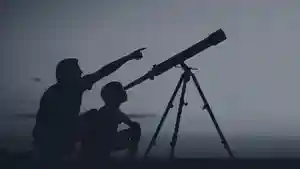
The Visionary Lens: The Leadership Superpower That Sees What’s Next
Before we had cities, governments, or even language as we know it, we had tribes. Small groups of humans relied on each other for food, shelter, and survival. The world was unpredictable and dangerous—strangers could mean competition, conflict, or death. So, we evolved to trust those closest to us and fear the unfamiliar.
Fast forward thousands of years, and we still carry these instincts. Tribalism is built into us. It explains why we form tight social circles, why we gravitate toward those who think like us, and why we’re quick to see outsiders as threats.
But here’s the problem: we no longer live in a world where tribalism serves us. What once kept us alive now holds us back.
Unlike tribalism, empathy is not automatic—it must be learned, practiced, and developed. Our brains are wired for fear and in-group loyalty, but they are also capable of incredible growth. Empathy is a higher-level function of the brain, requiring conscious thought and effort.
This means that empathy isn’t just a feeling—it’s a choice. And like any skill, the more we practice it, the stronger it becomes.
For our ancestors, fearing the “other” made sense. Today, it divides us in ways that are toxic and destructive.
Tribalism keeps us in survival mode. Empathy allows us to thrive.
It’s easy to assume that the opposite of tribalism is weakness or passivity. But the truth is, empathy requires more strength, intelligence, and discipline than tribal loyalty ever did.
Empathy isn't about being "nice." It's about being effective.
Since tribalism is instinctual, overcoming it requires effort. But the good news is, we can train ourselves to think beyond it.
Tribalism is easy—it requires no thought, no effort, and no reflection. But the cost is high: division, stagnation, and fear-based decision-making.
Empathy, on the other hand, is a choice—a decision to rise above our instincts and create a better world. It requires practice, effort, and the courage to challenge our fears instead of being controlled by them.
So, which will you choose? The safety of the tribe—or the intelligence of connection?
1. LeDoux, J. (2015). Anxious: Using the Brain to Understand and Treat Fear and Anxiety.
2. Decety, J., & Cowell, J. (2015). “The Neuroscience of Empathy: Progress, Pitfalls and Promise.” Nature Neuroscience.
3. Harvard Business Review. (2021). “Why Empathy is the Most Important Leadership Skill.”
4. World Economic Forum. (2023). “The Role of Empathy in Economic and Social Stability.”